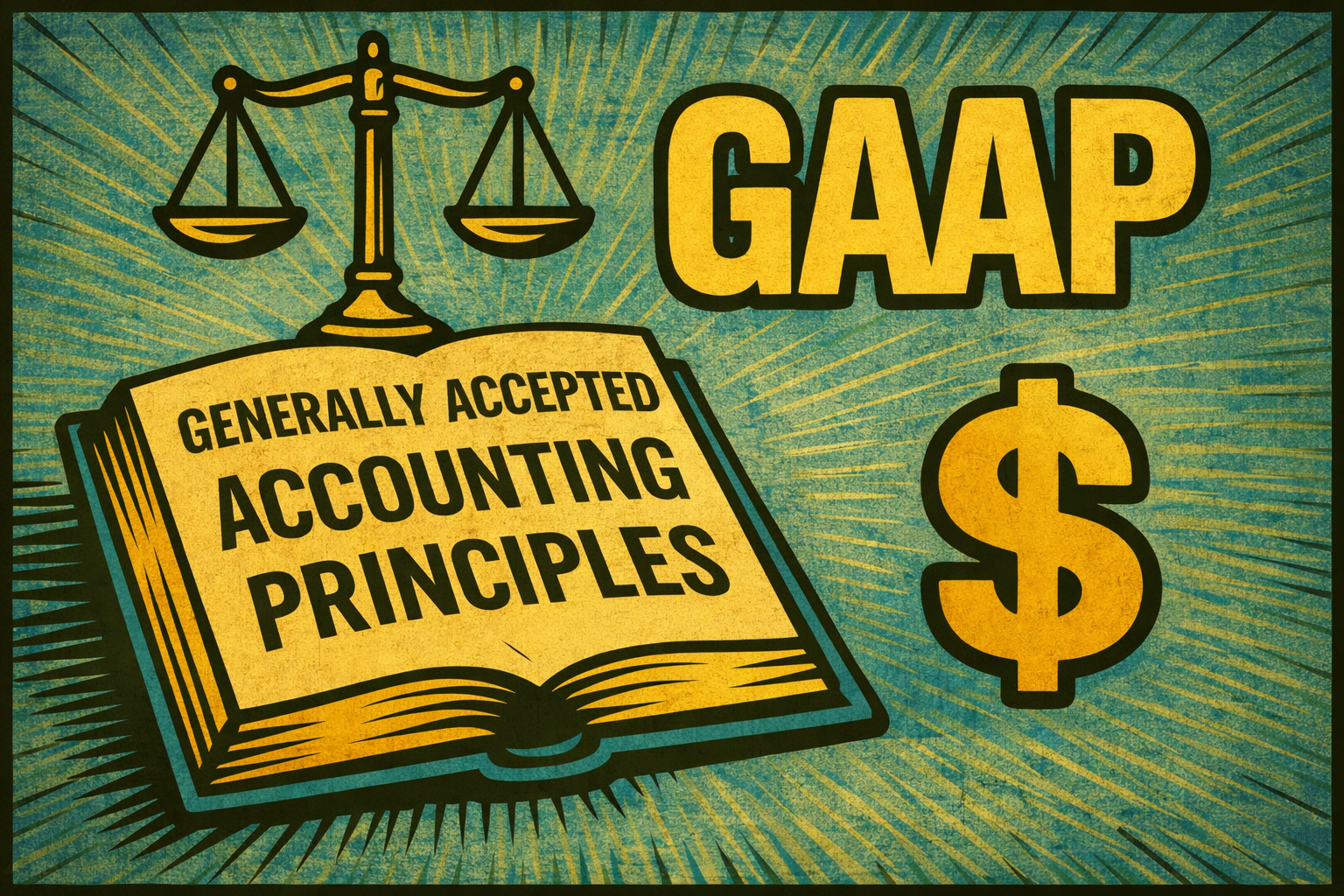GAAP: Generally Accepted Accounting Principles
“GAAP: Because lenders don’t buy
back-of-the-napkin math.”

GAAP: The Standard Language of Business Accounting
GAAP is the framework of accounting standards, principles, and procedures used by companies in the United States to compile their financial statements. It ensures that financial information is reported consistently, transparently, and accurately — so that owners, investors, lenders, and regulators can trust what’s on the page.
🧾 Why GAAP Matters for Business Owners
Even if you’re not a public company, understanding and using GAAP (or knowing when it applies) gives your business:
Credibility with lenders, investors, and partners
Clarity in financial decision-making
Compliance with financial reporting rules and industry norms
Comparability to benchmark against other businesses
Businesses that follow GAAP are viewed as more mature, trustworthy, and finance-ready.
🏢 When Is GAAP Required?
You may not be required by law to use GAAP — but in many situations, it’s expected or necessary when:
You’re preparing audited financial statements
You’re seeking bank financing over a certain size
You’re working with outside investors or venture capital
You’re planning to go public or sell your company
You want to benchmark against industry standards
Core GAAP Principles You Should Know
Principle | What It Means |
Revenue Recognition | Revenue is recorded when earned, not when paid. This ensures timing is accurate. |
Matching Principle | Expenses are recorded in the same period as the revenue they help generate. |
Consistency | Use the same methods from period to period for clear comparisons. |
Full Disclosure | All relevant info (risks, policies, etc.) must be disclosed in your financials. |
Going Concern | Your reports assume the business will continue unless evidence says otherwise. |
Historical Cost | Record assets at original cost, not market value |
Objectivity | Financial reporting should be based on verifiable data, not personal opinion |
🔎 What GAAP Covers
- Revenue & expense recognition
- Income statements, balance sheets, and cash flow statements
- Depreciation & amortization methods
- Inventory valuation methods
- Lease accounting
- Debt & equity classification
- Financial disclosures & footnotes
- Accrual-based accounting requirements
- Tax accounting
Why GAAP Matters to Bankers & Lenders
- Ensures financials are standardized and auditable
- Reduces risk of misrepresentation or creative accounting
- Builds trust when evaluating creditworthiness or collateral
- Allows for clean benchmarking and ratio analysis (e.g. DSCR, EBITDA)

Final Thoughts: Why GAAP Matters More Than You Might Think
Whether you’re raising capital, applying for a loan, prepping for an acquisition, or just want a true read on your performance — GAAP gives your numbers meaning, structure, and credibility.
And no — you don’t need to be a CPA to understand GAAP.
You just need to know when it matters, and have the right people and systems in place to help you apply it.
💡 GAAP isn’t just for big corporations.
Adopting GAAP principles, even voluntarily, helps you:
- Avoid misleading or confusing financials
- Support your long-term growth strategy
- Improve accountability and internal controls
- Stay ready for audits, investors, or exit opportunities
Bottom line?
GAAP keeps your books clean, your business legit, and your options open.

